Detection Dog Training: Controversy?
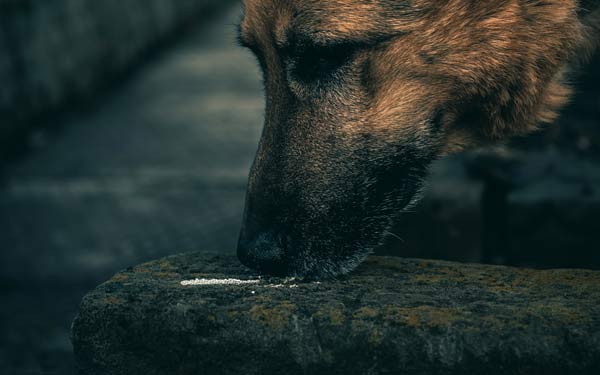
Foreword by Ed Frawley
I met Kevin Sheldahl in 1984 at a police K-9 school in Kansas. We have been good friends ever since. Kevin is a retired police K-9 handler. He became a K-9 Instructor and an International Police Dog Judge. Kevin's company K-9 Services runs 6-week police K-9 courses in which police officers learn how to become new K-9 handlers. To date, he has run 70 6-week courses and trained over 1,200 K-9 handlers. I don't know of another dog trainer that has Kevin's experience and knowledge of police service dogs training.
I have been fielding a few questions about detection dog training in the law enforcement environment. With the amazing growth of civilian nosework, the growing role of security companies in protecting sporting venues, public areas, as well as the need for explosive detector dogs in law enforcement, and military the industry has blossomed.
Now, we also have bed bug dogs, pipeline leak dogs, cancer detection dogs, etc. out there in the world. I for one am glad to see the interest. Yet, fearful of unregulated, non-standardized, business generating bad actors taking advantage of people and organizations. Now before you say I am off base, paranoid, or just being exclusionary, let me remind you. People have gone to jail for planting evidence in human remains/homicide cases. Companies have fielded untrained explosive detection dogs and been called on the table for it. The issue is not new, it is just growing.
To add fuel to the fire, there are controversies about the the use of manufactured training aids to assist in training dogs for a variety of purposes. Narcotics, explosives, cadaver, bed bug, and electronic storage device training aids made with a variety of theoretical approaches exist. They also exist to anybody willing to buy them and train with them. This opens wider the already unregulated service dog vendor dilemma. That being, unqualified dog people posing as qualified instructors.
Add to the questions the training aids have been unable to answer clearly (do they actually work, are the dogs functioning as expected?), then add whether the practitioner using them is qualified? The industry is in shambles!! So, here is my list of what to understand in the industry of detection.
- Who is selecting the canine candidates and how. The selection of dogs is paramount to field level success. The selection of sub standard dogs is the beginning of failure. This cannot come from a book, or a couple of dogs handled in the past, it comes from testing, training, evaluating, maintaining, and problem solving with detection dogs for the long haul…throughout the dogs' careers.
- Where did the instructor derive their expertise? From dog trials, from deployments in real world circumstances, from the laboratory? The only correct answer is that the instructor trained, handled, and achieved multiple successes under structured programs and had their expertise audited/tested on a continual basis as handler and instructor. No one that just decided to hang their shingle allowed. Self proclaimed experts need not apply!
- Does the use of manufactured training aids produce the goals under the tutelage of the instructor. If so have they been involved in training long enough to have a perspective on how such aids can help and or hinder the progress of their students within the program. Are benchmarks always achieved with real substances? Testing must be with the substance as it is sought in the working environment the team is intended to work in. No way around it at this point in detector dog history, none.
- Does the instructor have a written curriculum including standards and assessments to determine if the teams they are working with are truly proficient. This should include a student manual, which must include methodology, and theory. Is the instructor up to date themselves on the theory of dog training, recent research on detection, as well as past research and empirical data in the field?
- Does the instructor possess enough experience in the remediation and problem solving arena, both for dogs and handlers, as well as institutional problems and solutions to fielding a proficient team? This can only be answered by students assessments of the instructors and the institutions the instructor supports. Interview students, look at the big picture, inquire among peers and even competitors. Do your research.
- Is the instructor up to date on case law and current events in the detection field?
- Has the instructor spent time on the witness stand? A good instructor will understand and have experience in suppression hearings, trials, and at best have been declared an expert in State and/or Federal Courts as a canine expert.
Now these are just my thoughts on the subject, but if you want a high quality experience in canine detection please seek out a truly qualified instructor, it will save much heartache for the handler and institution they work for.



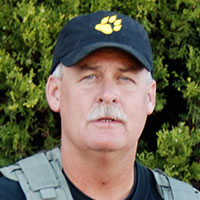
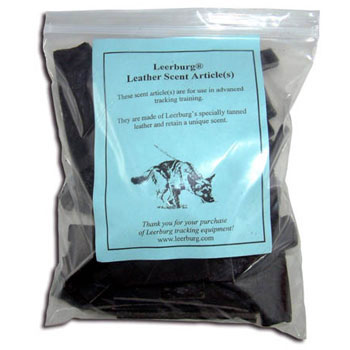
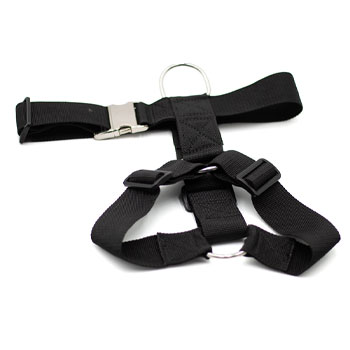
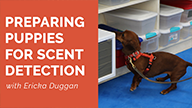
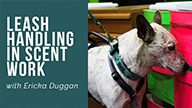
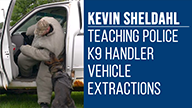
Ask Cindy.